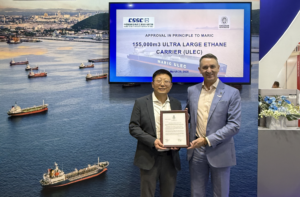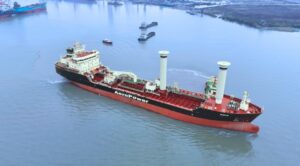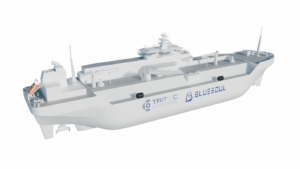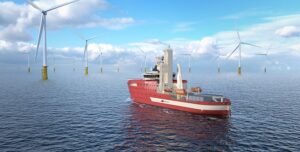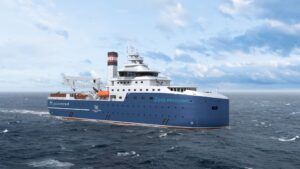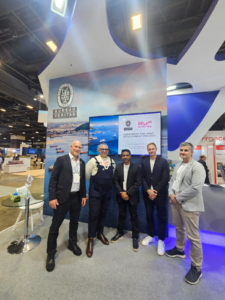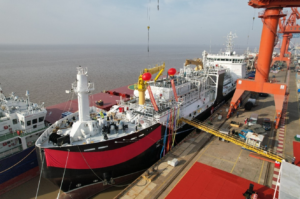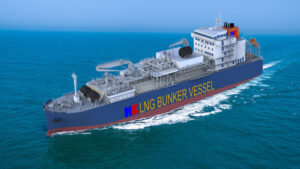BV grants GTT approval for ballast-free LNG bunker vessel
The classification society Bureau Veritas (BV) has awarded approval in principle to French LNG containment specialist GTT for its ballast-free LNG bunkering and feeder vessel.


Last year, GTT announced that it has obtained, with its partner Hudong Zhonghua Shipbuilding, a double AiP from the classification Society China Classification Society (CCS) and DNV for the “Ballast-Water-Free” LNG bunker & feeder vessel concept.
Now, GTT has been awarded a new approval in principle from BV for the same design.
The majority of merchant vessels worldwide use ballast water when they are empty or partially loaded in order to maintain seaworthy conditions. Therefore, a considerable quantity of ballast water is carried by ships every day. Even when ballast water is treated, there is a risk of transferring harmful aquatic organisms and pathogens from one area to another. The GTT’s solution eliminates this risk completely. In addition, removing the ballast water treatment system also reduces the energy consumption and CO2 footprint of the vessels.
The GTT “Shear-Water” concept is based on the currently proven vessel of 18,700 cbm capacity with two membrane tanks. The design also features a new hull shape, in a “V”, which differs from the standard square-shaped mid-ship sections traditionally used for LNG carriers.
A testing campaign has been carried out at the HSVA Hamburg tank test facility in connection with power-speed, maneuverability and sea keeping. A sloshing test campaign has also been carried out by GTT to ensure the technical feasibility of the project.
Related Article
-
GTT’s new ecological LNG bunker vessel concept approved
Infrastructure
Philippe Berterottière, CEO of GTT, said: “We are proud to have developed “Shear-Water”, an innovative ballast-free design for LNG bunker and feeder vessels. This new technological solution allows a reduction in investment and operating costs, simpler operations as well as a reduction in corrosion supporting a longer service life. Obtaining this approval by Bureau Veritas constitutes recognition of the ecological relevance and performance of our technological solution.”
Mathieu De Tugny, vice-president of BV, said: “Bureau Veritas has given approval in principle to this new design, which has clear performance and environmental benefits: delimination of the need for ballast water treatment systems and equipment; easier maintenance of the void spaces surrounding the cargo, and reduced propulsion power requirements. Bureau Veritas has monitored and reviewed all the test results performed to support its approval in principle.”

